
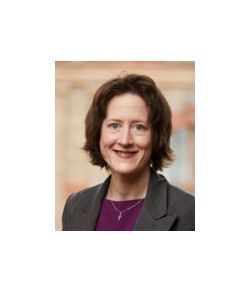
Anja Appel
Anja Appel is a steering member of SDG Watch Austria. Anja Appel is a political scientist and has headed the coordination office of the Austrian Bishops' Conference (KOO) since 2018. Previously, she was with the Catholic Women's Movement of Austria, first as development policy officer of Aktion Familienfasttag and then kfbö general secretary. She represents the KOO network in the worldwide international working group of Catholic relief organizations CIDSE based in Brussels. She is on the Supervisory Board of ÖFSE, on the Advisory Board of the Episcopal Relief Organization Misereor, on the Ethics Advisory Board of Erste Asset Management, and an advisory member of the Diocesan Commission for World Church and Development Cooperation of the Archdiocese of Vienna.
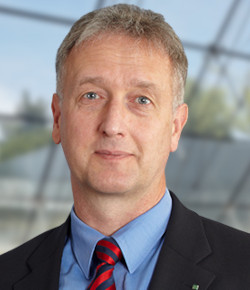
Dieter Fellner
Dieter W. Fellner is Professor of Computer Science at the TU Darmstadt and Director of the Fraunhofer Institute for Computer Graphics Research IGD, also in Darmstadt. Fellner's research areas in recent years have included Efficient Rendering and Visualization Algorithms, Generative and Reconstructive Modeling, Virtual and Augmented Reality, Graphical Aspects of Internet-based Multimedia Information Systems, Cultural Heritage and Digital Libraries as well as Visual Healthcare Technologies. In addition to his work in Darmstadt, he is managing director of Fraunhofer Austria Research GmbH and holds a professorship at Graz University of Technology. Since January 2016, he has been Chairman of the Fraunhofer Information and Communication Technology Group and a member of the Presidential Board of the Fraunhofer-Gesellschaft. He is also an editorial board member of leading journals in computer graphics, cultural heritage, and digital libraries, and a member of the program committees of numerous international conferences and workshops. Dieter W. Fellner is a member of Academia Europaea and a Fellow of the Eurographics Association. In 2018, he was awarded the Eurographics Gold Medal. In 2019, Prof. Fellner was awarded the honorary doctorate of engineering (Dr.-Ing. eh.) from the University of Rostock.
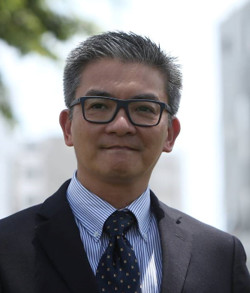
Marco Kamiya
Marco Kamiya is Chief of the Division of Digital Transformation and Artificial Intelligence Strategies at UNIDO, the United Nations Industrial Development Organization. The Division works on frontier technologies, innovation ecosystems, and digital transformation, including intangibles and branding as major components. Marco Kamiya was the Chief of the Urban Economy and Finance Branch at UN-HABITAT in Kenya. Previously a senior officer at CAF Development Bank for Latin America in Caracas, the Inter-American Development Bank in Washington DC, and senior economist of PADECO Co., Ltd., in Tokyo. He has published academic papers, policy reports and position articles on urban economy, technology and SDGs. He studied International Development at Harvard University.
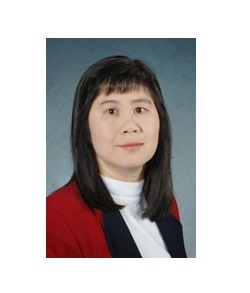
Ming C. Lin
Ming C. Lin received her B.S., M.S., Ph.D. degrees in Electrical Engineering and Computer Science from the University of California, Berkeley. She is a Distinguished University Professor, Dr. Barry Mersky and Capital One E-Nnovate Endowed Professor, and former Elizabeth Stevinson Iribe Chair of Computer Science at the University of Maryland at College Park (2018-2022), and an Amazon Scholar. She is also John R. & Louise S. Parker Distinguished Professor Emerita of Computer Science at the University of North Carolina (UNC) - Chapel Hill, and was an honorary Distinguished Professor (Yangtze Scholar) at Tsinghua University in China and University of Sydney in Australia. She received several honors and awards, including NSF Young Faculty Career Award, Honda Research Initiation Award, UNC/IBM Junior Faculty Development Award and Hettleman Award for Scholarly Achievements, Beverly W. Long Distinguished Term Professor, IEEE VGTC VR Technical Achievement Award, Washington Academy of Sciences Distinguished Career Award, and 13 best paper awards. She is a Fellow of National Academy of Inventors, ACM, IEEE, Eurographics, ACM SIGGRAPH Academy, and IEEE VR Academy. Her research interests include computer graphics, robotics, and human-computer interaction, with focuses on physically-based modeling, sound rendering, haptics, algorithmic robotics, virtual environments, interactive techniques, geometric computing, and distributed interactive simulation. She has (co-)authored more than 300 refereed scientific publications and co-edited/authored four books.
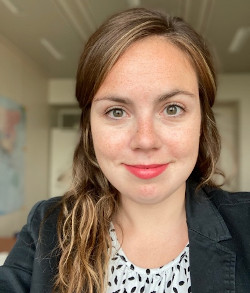
Kirsty Rancier
Kirsty Rancier is the youth focal point for the United Nations Office on Drugs and Crime (UNODC) and has in-depth experience engaging youth in educational and electoral contexts. As an Associate Programme Management Officer, she works to mainstream youth activities within UNODC and advocates for the accomplishment of the Sustainable Development Goals in inter-agency spaces. Kirsty holds a Master of Arts in Public Policy and Public Administration from Concordia University (Canada) as well as a Bachelor of Management from the University of British Columbia (Canada).
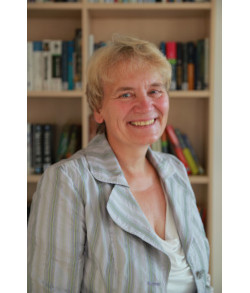
Heidi Schumann
Heidrun Schumann is a professor emeritus at the University of Rostock, where she was heading the Chair of Computer Graphics at the Institute for Visual & Analytic Computing. She has published more than two hundred articles in top scientific journals co-authored four books, including the first German textbook on data visualization in 2000 and the first textbook in Visual Analytics in 2020. In 2014, Heidrun Schumann was elected as a Fellow of the Eurographics Association, and in 2020, she was inducted to the IEEE Visualization Academy.
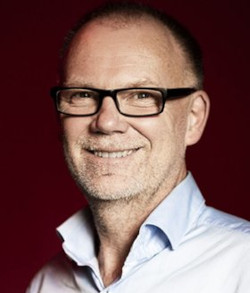
Anders Ynnerman
Ynnerman holds the chair in scientific visualization at Linköping University, is the director of the Norrköping Visualization Center C and is affiliated with the SCI institute at the University of Utah. His research focuses on fundamental aspects of visualization and interaction with volumetric data and immersive visualization technologies. Applications are found in areas such as medical visualization and astronomy and space science. He is also heavily engaged in research on science communication using visual representations. Ynnerman is a member of the Royal Swedish Academy of Engineering Sciences and the Royal Swedish Academy of Sciences. He belongs/belonged to the editorial boards of IEEE TVCG, IEEE CG&A, CAG and has been scientific co-chair (e.g., IEEE SciVis 2013, 2014, EuroVis 2007), and general chair (e.g., EuroVis 2007, EG 2010, EGEV 2020) of leading conferences. He served on the reVISe committee and is chairing the EuroVis steering committee. He also served as Overall Papers Chair for VIS 2021 and 2022. In 2018 he received the IEEE VGTC technical achievement award and he is a member of the IEEE Visualization Academy.

Moderator: Katja Bühler
Katja Bühler studied Mathematics at Karlsruhe Institute of Technology completing her degree in 1996. Following a one year research exchange at Centro de Computación Gráfica y Geometría Aplicada, Universidad Central de Venezuela, funded by the German DAAD, she moved to Austria to work towards a doctorate in computer science at the Institute of Visual Computing & Human-Centered Technology, awarded to her by TU Wien in 2001. There she held also a position as assistant professor until 2002. She seamlessly continued her career as a senior researcher at VRVis and external lecturer at TU Wien. In 2003, she was promoted to Head of the Biomedical Image Informatics Group at VRVis. 2010-2020 she coordinated in addition the research area Complex Systems. In 2021 Katja Bühler took on the role of scientific director of VRVis. Katja Bühler has many years of experience in developing innovation and research strategies and in leading their implementation as international basic and applied research projects in close cooperation with industry and science at international level. Her scientific roots are to be found in reliable computing and numerics, geometry processing and visualization. Learn more about Katja Bühler, her projects, awards and publications.
Katja Bühler acts as coordinator and moderator of the jury.